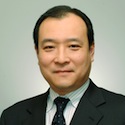10:45 AM
Japan�s Migration to Electronic Execution & Dark Pools
Following Michael Lewis’s highly publicized look into the electronic trading infrastructure in the US in his recent book Flash Boys, one might wonder what the state of electronic trading is in other major international markets. Nomura Research Institute (NRI), a leading provider of consulting services and system solutions, surveyed leading asset management firms with in-house trading operations in Japan to dive deeper into the current state of electronic trading and brokerage between investors and the Tokyo Stock Exchange.
During the past decade, brokers have been launching new services such as algorithmic trading and dark pools while linking up with the Tokyo Stock Exchange’s arrowhead trading system and complying with new short-selling regulations. Now that IT investment in such electronic trading infrastructure has slowed, differentiation of execution services has become more difficult than it has in the past.
At NRI, we have periodically conducted industry surveys focused on asset management trading activities and most recently completed a study that examined how asset management companies decide which broker to submit equity trading orders to and how they evaluate brokers’ services. This research yielded some interesting findings, including that the direct spoken communication between asset management companies and brokers is decreasing and the use of execution methods that reduce market impact and timing risk is increasing.
Direct communication diminishes as electronification rises
In our survey, we inquired about the four main execution services that brokers provide to asset management companies: principal trading, discretionary execution, algorithmic trading, and direct market access (DMA). The survey found that principal trading and discretionary execution are used by more than 90% of respondents and that algorithmic trading and DMA are used by roughly half of respondents. Relative to three years earlier, nearly 40% of respondents reported that they have reduced their use of discretionary execution and about 80% reported increased use of algorithmic trading and DMA. This data demonstrates that asset management companies are migrating to electronic trading.
After brokerage commissions were liberalized in Japan in 1999, competition among brokers intensified, giving rise to cost-cutting pressures and driving widespread electronification and automation of execution services. This led to mechanization of the trade execution business, leaving brokers with no choice but to downsize their sales forces. Weakening of brokers’ information provision capabilities due to the decrease in direct spoken communication with asset management companies can be considered a drawback of the shift toward electronic trading.
Asset management companies receive advice from brokers’ sales traders about execution strategies, order conditions and other such matters. They also obtain information from sales traders about the status of pending orders. According to our research, this communication with brokers has decreased in recent years. This shift is a result of brokers having reduced sales trader staffing and fewer opportunities for direct telephone conversations due to the increased use of algorithmic trading, DMA, and other forms of electronic trading.
Avoidance of market impact gaining momentum
When asked about the intended future usage of brokers’ execution services, more than 60% of respondents in our most recent survey reported that they want to increase their use of dark pools and brokers’ in-house matching services that utilize IOIs (indications of interest). In comparison with stock exchanges, both dark pools and in-house matching are distinguished by a lower risk of self-induced price movements when large orders are executed because bid and ask quotes are not publicly disclosed. There is a growing trend toward avoidance of market impact, and it presumably reflects growth in order size and growing use of basket orders and average execution prices.
With respect to dark pools, survey respondents’ expectations include execution of trades at prices better than on-exchange execution prices. They also include hope that dark pools’ execution processes will become more transparent, so that they can trade in dark pools with peace of mind, even if bid and ask price quotes are not visible. Until a few years ago, brokers were able to improve their client satisfaction ratings solely by offering a dark pool. Now that dark pools are widely available, however, brokers are faced with the challenge of how to differentiate their dark pools for competitors’ in terms of factors such as reliability and order execution rates.
Additionally, asset management companies are pursing improved operations efficiencies by separating the job of fund managers in charge of managing portfolios from the job of traders in charge of buy- and sell-side orders within the past few years. Our research has demonstrated that the position of buy-side trader is becoming increasingly specialized, partly due to the asset management companies hiring former sell-side traders. This trend is likely one factor driving these organizations' increasingly demanding view on execution performance.
The future of the markets
Asset management companies’ evaluation of brokers heavily reflects changes in the regulatory and business environment. The new needs and trends engendered by such changes are deeply interrelated, not independent of each other. While the trend toward electronic trading has led to a decrease in communication, it is also connected to traders’ growing specialization and the increased importance placed on execution performance. Brokers who have been investing in infrastructure to automate their business processes and realize labor cost savings face the difficult problem of how to meet demand for manually provided services such as execution advice and in-house order matching. Perhaps only brokers capable of offering solutions to this challenge will be able to earn high ratings from asset management companies and win continued order flow.
























